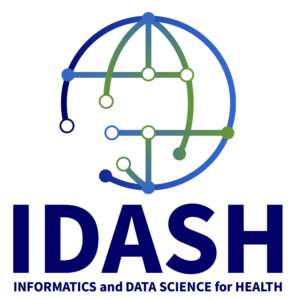The  COVID-19 pandemic stretched health systems to their limits, exacerbated health inequities, and highlighted the need for flexible health systems that utilize digital health technologies to benefit patients, populations, healthcare providers, and public health officials. To support the need for strong information systems and public health workforces, I-TECH, the Centers for Disease Control and Prevention (CDC), and the World Health Organization – European Regional Office (WHO-EURO), developed and launched the Informatics and Data Science for Health (IDASH) fellowship program.
COVID-19 pandemic stretched health systems to their limits, exacerbated health inequities, and highlighted the need for flexible health systems that utilize digital health technologies to benefit patients, populations, healthcare providers, and public health officials. To support the need for strong information systems and public health workforces, I-TECH, the Centers for Disease Control and Prevention (CDC), and the World Health Organization – European Regional Office (WHO-EURO), developed and launched the Informatics and Data Science for Health (IDASH) fellowship program.
IDASH is a 12-month, competency-based fellowship program designed for current and future public health leaders at the national and sub-national levels. IDASH aims to strengthen regional capacity to use public health information systems and data to improve population-level health outcomes, effectively detect and respond to public health threats, and promote health equity.
I-TECH collaborates with ministries, universities, CDC, and WHO to implement IDASH in the participating countries and regions. Co-creation of the necessary frameworks, audiences, competencies, and training models with partner countries and institutions is core to the IDASH program from the outset to maximize ownership, return on investment, and sustainability. Over the course of 12 months, fellows participate in in-person workshops, boot camps, virtual communities of practice (COPs), virtual technical skills training, and receive mentoring to support their IDASH country capstone projects.
The in-person workshops cover public health informatics and data science topics including interoperability, enterprise and systems architecture, data governance and security, visualizations, data quality, cleaning, and analysis, dashboard development, project management, and business process analysis. Sessions include a mix of didactic lectures, small group activities, peer-learning, and case studies. Fellows have the opportunity for individual and team-based consultations with subject matter experts on their country team capstone projects and other technical topics.
Between workshops, fellows participate in monthly virtual mentor meetings and communities of practice and collaborate to work on their country capstone projects. Mentor teams also conduct one site visit to each country during the intervals between workshop 1 and 2. Fellows receive a certificate following the successful completion of the IDASH program.
The fellowship program is currently being implemented in the Eastern Europe and Central Asia (EECA) and South America regions.
Central Asia and Eastern Europe Region
In April 2023, I-TECH, in collaboration with the CDC Regional Office for Eastern Europe and Central Asia (EECA) and the World Health Organization Regional Office in Europe, launched the first IDASH cohort of 20 fellows from Georgia, Kazakhstan, Kyrgyzstan, Ukraine, and Uzbekistan. Cohort 1 projects include:
- Automating Data Analysis and Visualization for Hepatitis C Clinical Cascades (Georgia)
- Automation of Emergency Notifications to a Central Database (Kazakhstan)
- Developing a Unified Business-Intelligence Platform for Disease Surveillance Data Analysis for Rayon-, Oblast- and Republican-level Actors (Kyrgyzstan)
- Advancing an Electronic Non-Communicable Disease Reporting System (Ukraine)
- Creation of Module for Infectious Disease Mapping; Improve Reporting, Mapping, and Forecasting (Uzbekistan)
South America Expansion
IDASH expanded into five countries in South America in 2024. In February 2024, I-TECH established a regional executive committee to support program design and implementation in the participating countries and enroll a new cohort of fellows in the participating countries.